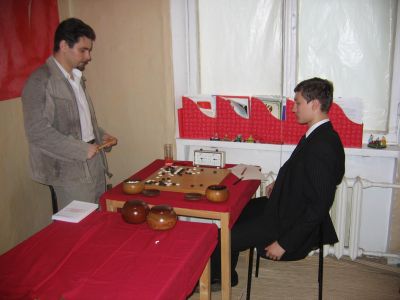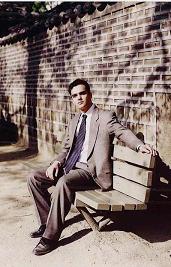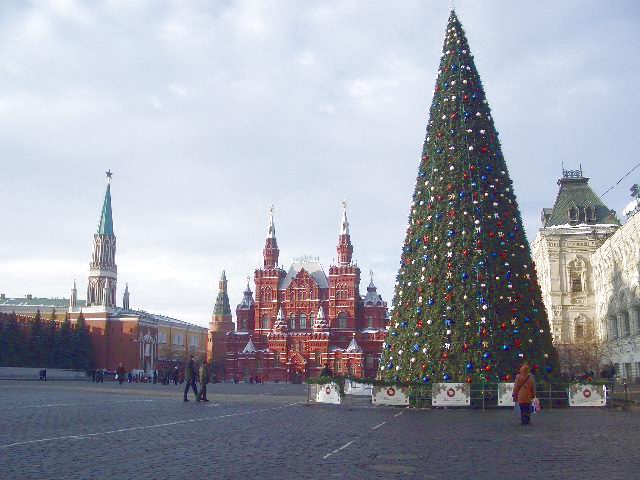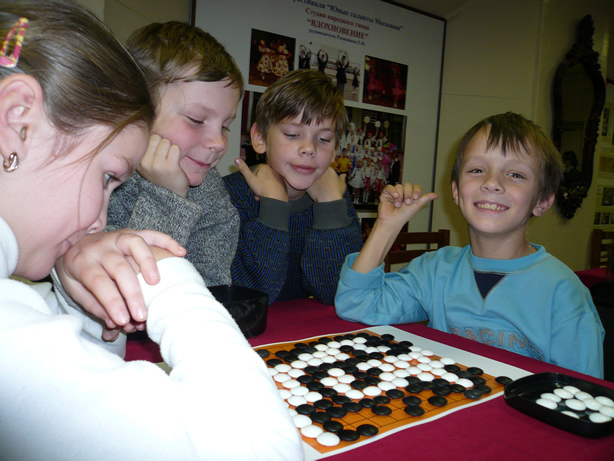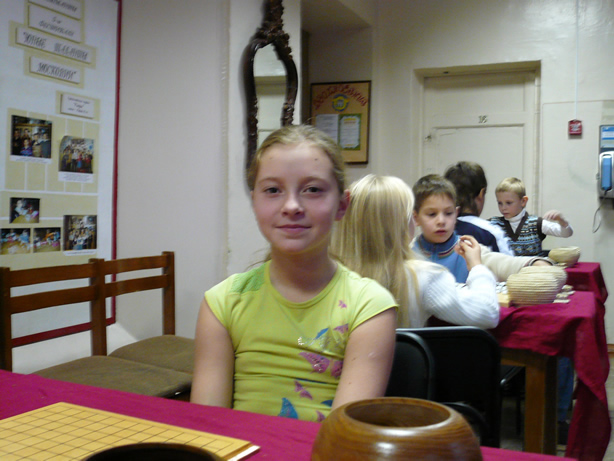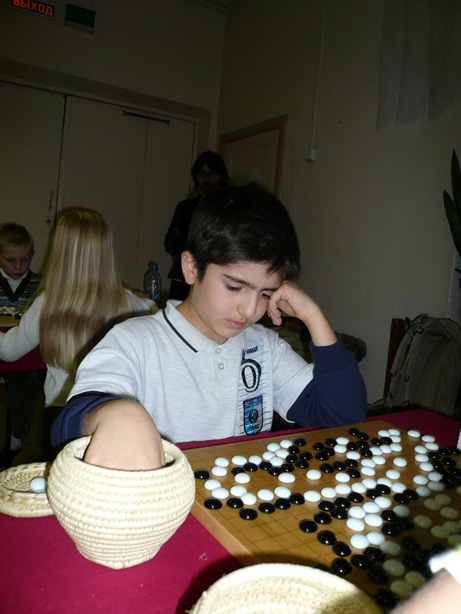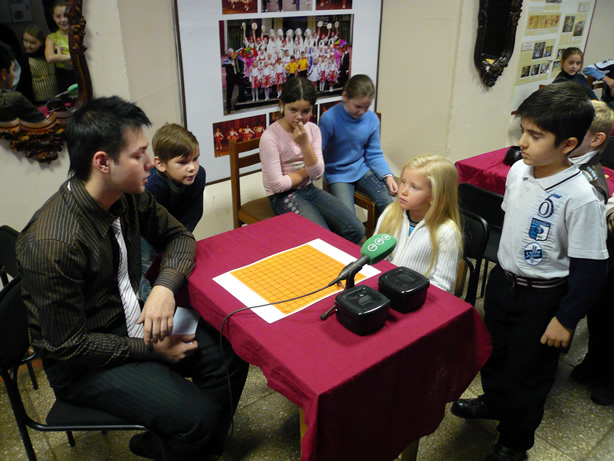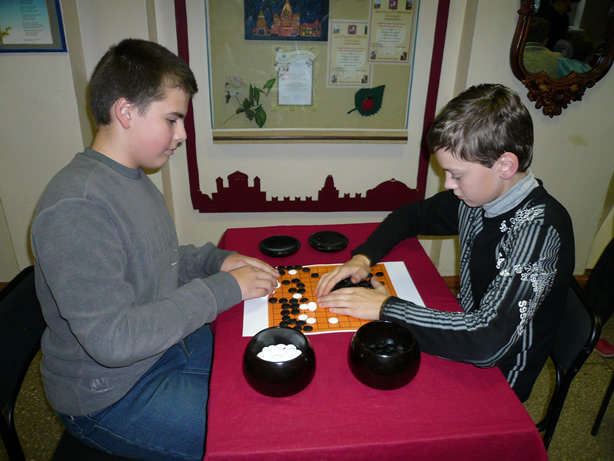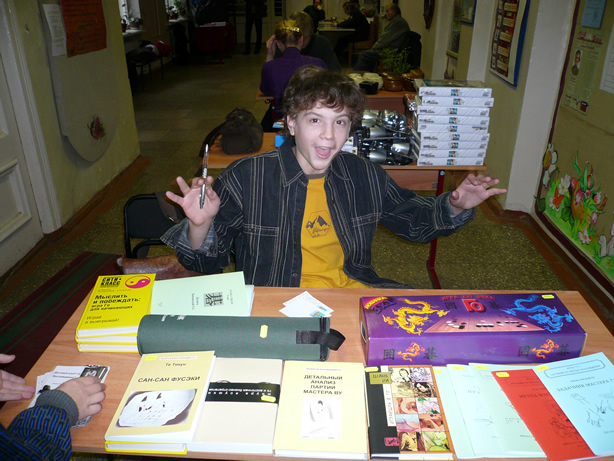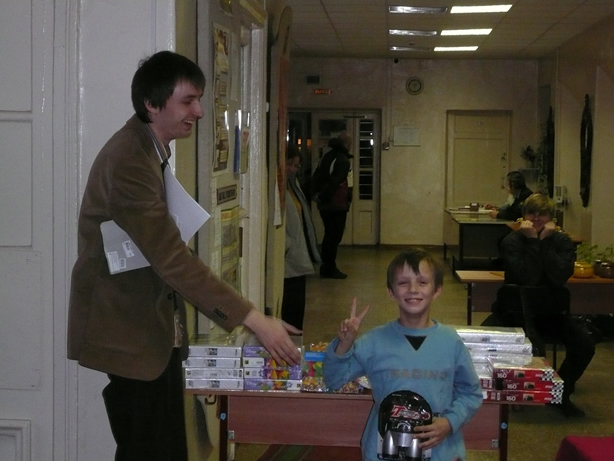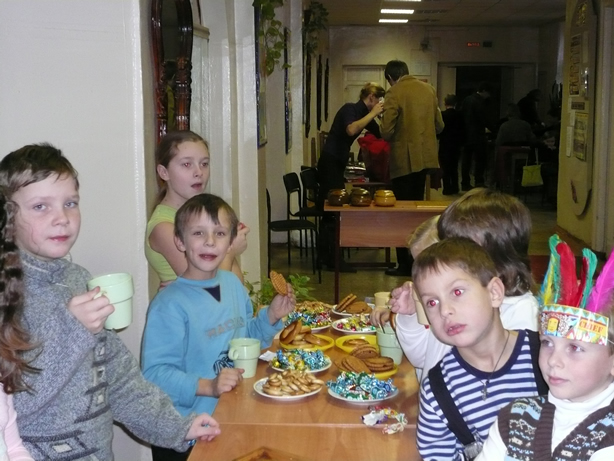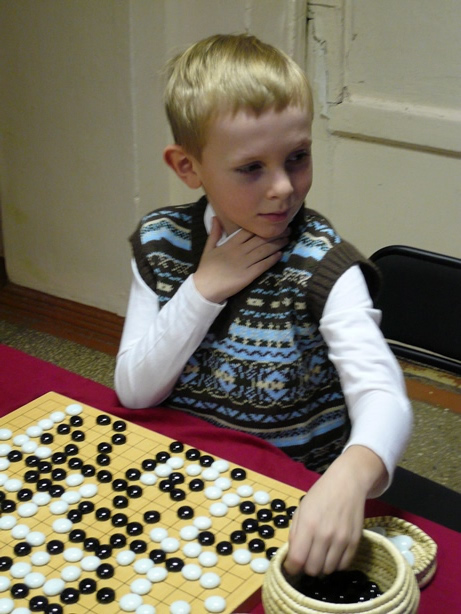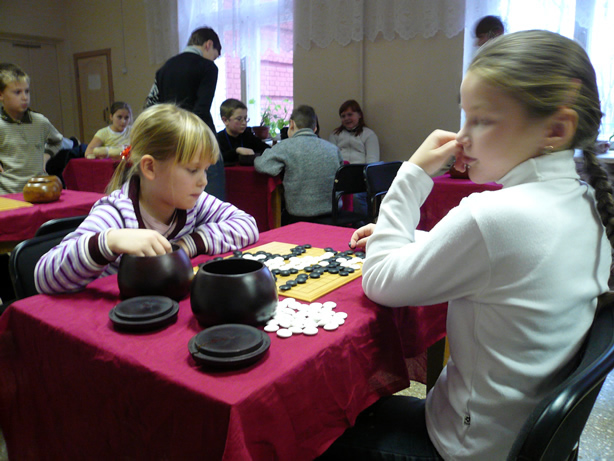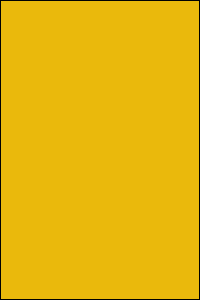Distinctive features of German and Russian military strategies during the winter campaign 1941 – 1942. (defence of Moscow). Short sketch.
By Mikhail Emelyanov, the vice-president of The Go Federation (Moscow, Russia).
In contemporary military-historical science the facts concerning the winter defense of Moscow are well studied both from German and Soviet troops sides. Moreover, the strategic decisions of the military leaders of the two opposing sides and the results of their implementation are well known. However, it is still possible to discover some new interesting facts analyzing this great military operation.
Let’s describe the situation in the eastern front in winter 1941. The German troops move forward into the center of the USSR, however, the main task set for the German army isn’t fulfilled: the Red Army isn’t defeated, Moscow isn’t conquered and the way to the Volga isn’t opened. By September 1941 it has become clear that the war is going to last till winter at least. This doesn’t fit to Germany military plans according to which the eastern campaign was projected. German economy starts experiencing a great shortage of resources. Moreover, the army supply in the center of Russia is getting worse and worse but nothing can be done about it. There are no any winter uniforms even at German depots.
In this situation Hitler gives a task to defeat the Red Army at any cost. It can be done by taking over Moscow as the most important political and economical center of the country. General Field-Marshal Fyodor fon Bock, the commander of central armies, proposes his plan of seizure that becomes the basis of the operation called “Typhoon”. Despite the bad supply and fatigue of troops fon Bock decides to risk counting on the adversary’s lamentable state. Besides, fon Bock believes that the troops’ supply is going to be improved or at least stay the same as it is impossible to attack without fuel and ammunition. Surmising logically that having approved this operation military leaders have all responsibilities for ensuring of its fulfillment – supply, reserves and political maintenance.
Having started quite successfully, the operation “Typhoon” almost stopped in the mid-October because of bad weather conditions that almost paralyzed the supply of the troops and slowed down their movement. At the same time the German army was influenced by fierce resistance of Russian armies the German hoped to overcome without great efforts. We should not forget the fact that Wermacht and SS armies combated without winter uniforms and almost without reinforcement.
As a result by November the advance of “Center” armies exhausted. The weakened army just stopped as they had run out of fuel, ammunition and food. At the same moment the Red Army started their counteroffensive measures. The German front was broken in several places and the divisions started withdrawing under the pressure of Russian troops.
Now the conduct of the group of “Center” armies had to face with a strategic dilemma, which was stated by General Field Marshal fon Bock: “I’m not going to propose anything, I did it earlier. The problem, that is waiting for a solution, is out of military limits. Fuhrer must decide whether the group of armies stays here at this line, which may lead to its defeat, or it should withdraw, which may be dangerous as well. If he decides to withdraw, he must be aware if there are enough forces in the rear to possess unprepared back areas. Small reinforcements promised to me are approaching too slowly, they are not going to play any sufficient role in this decision”.
Thus, Hitler had to decide whether to take the armies to unprepared back areas with great loss of armament and material that couldn’t be withdrawn from the front line because of transport and fuel lack; or hold on to the last. In this case the Red Army forces could annihilate them. Quite a hard task! At the same time fon Bock handed resignation.
At that time Hitler issues an order “not to move an inch back” where he calls to fight for every inch of the territory. The order arouses hot protest of the front conduct of the German army. New commander of the group of “Center” armies General Field Marshal Gunter fon Khluge phones Hitler and the chief of the Land forces headquarter, Colonel-General Franc Galder, requiring to permit withdrawal of the troops that are located on bad positions. General Field Marshal Ritter fon Leeb, the commander of the group of armies “North”, hands resignation because he isn’t permitted to move the troops. Commander of the group of armies “South”, General Field Marshal Valter fon Reichnau, has got a cerebral hemorrhage because of overstrain.
The general state of the armed forces command could be characterized as “general distrust”. Commanders of armies quarrel with each other and Hitler, who orders to hold occupied lands using threats, deception, and persuasion. Being infuriated, Hitler says that if the Germans are not able to pay with their blood for world supremacy they must be annihilated.
What was the main complaint of the front conduct to Hitler as to the Commander-in-chief? He was blamed for disregarding of real state of things and for requiring of impossible things, that’s holding the positions with the incapable army. Hitler replied that the generals were not able to see the whole picture of events as their sights were too narrow and confined with the front line. And the real situation is clear to a person who had the whole quantity if information, in other words, to High Command.
Hitler asserts that the generals overestimate the power of the adversary and they need to do a little bit more to defeat the Red Army. At the same time he disagrees that troops cannot do anything requiring additional efforts. Was Hitler right or not? To answer this question we need to move across the front and see what is going on in the Red Army.
In September in Moscow Russian army collect all human reserves. Chaos and panic reign in the city. The organizers of defense have to remove herbs of cow from the city, block up the streets with barricades of anti-tank hedgehogs. Poor trained and bad equipped armies rush into fights against the advancing German troops. There is a lack of everything: tanks, rifles, ammunition and anti-tank riffles. Zhukov, the Commander of the western front, nearly makes commanders to fight. Commanders phone Stalin requiring to supply the army at least with ammunition (in the 10 army there were only 10 anti-tank riffles). The Red Army suffers huge losses. Zhukov relocates the subdivisions from quiet regions to those in emergency state.
As we can see, Hitler estimated the state of his adversary quite correctly. However, it was impossible to do this because of lack of fuel and ammunition and the general exhaustion of moral, courage and physical emaciation. In the end of November the Red Army started counter-offensive measures in the frontline. The crucial situation arose on the German side.
Now we can notice an interesting fact. Having approved the plan of the winter advance, Stalin was sure that German defense would collapse after the first attack. Thus, like Hitler, Stalin underestimated the German forces and overestimated his troops. As a result the German troops sustained the winter advance of the Red Army, though the defense entailed a great confrontation between Hitler and the commanders of German armies. Hitler called this period of his life the hardest. Stalin demanded to continue the advance by all means, asserting that the German defense was about to collapse. The Red Army couldn’t get to the turning point, so the advance started exhausting.
What is this situation similar to? It is similar to the situation on a boxing ring by the 11th-12th round when the adversaries are exhausted and unable to strike violent blows. However, each of them understands that only one more blow is needed to defeat the adversary. But none of the boxers can strike a final blow. The trainers observing the struggle try to make their fighters exert the last effort and “switch off” the enemy.
It looks like both Hitler and Stalin estimated the strategic environment correctly and suggested a right decision – to smash the weak adversary. In fact it was impossible as their armies were unable to fight. Such situation which can be called “the crisis of execution” is quite common in Go, when a player assigns for stones a task which is correct conceptually but is impossible to be fulfilled.
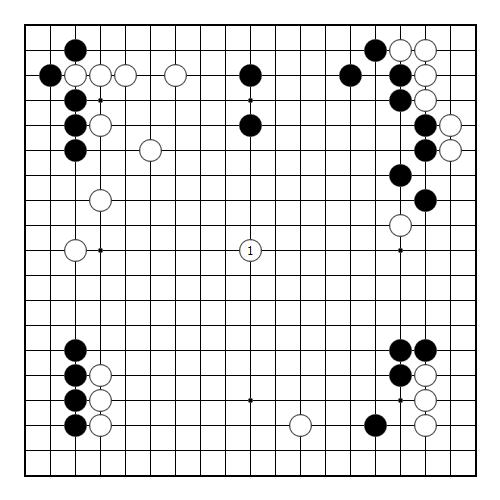
Picture 1
For instance, in the first picture the 1st player suggests occupying the central point 1 to fill up the whole center with white stones. However, we can see that it is very difficult to fulfill this plan as below there is a strong group of black stones to the right. Above all, there is a strong group of black stones as well. To the left there are black stones that can easily “rush through” the center. It is impossible to build anything in the center under such conditions. Though, if we think about perspectives, we’ll see that filling up the center by white stones would be the best case scenario.
What decision would an experienced “general” suggest?

Picture 2
S/he could offer to concentrate on some real steps (the strategy of small shapes), for instance, it could be possible to occupy the lower side by, say, stone 1. Of course, such a wide move isn’t the best variant. It would be better to move forward more conservatively (at least one line lower). In this case such position is the “general’s” attempt to follow the commander’s plans. But even such daring decision is devoid of ambitions of the previous scheme. “The commander” who stakes very high may take such trend of events as too minute and hopeless. As they say, “you’ll get nothing by it”.
Who is right in this case? The commander who sets ambitious but, probably, unrealizable tasks, or the general who proceeds from what can be done but doesn’t see a greater profit? Perhaps, the answer to this tough question defines the course of history. Who has more holistic approach? The commander or the general?
After all the crisis of trust between the generals of Vermacht and the conduct of Land Forces was in the contradiction between these two opinions. Hitler demanded to hold the positions asserting that from the point of his view it was obvious that the advance of the Red Army was about to stop. But the generals demanded to permit immediate withdrawal of the troops to avoid possible annihilation of the armies, blaming Hitler for lack of professionalism and for being up in the clouds. They often explain other Hitler’s high scale plans of global domination achieving by “being up in the clouds”. Were these plans inadequate to reality or Germany lacked will and decision?
On the one hand Hitler could estimate the adversary’s strength quite correctly as he was able to guess what was going on the other side of the front line. On the other hand the generals didn’t believe in the possibility of Hitler’s plans fulfillment because they estimated these plans from the viewpoint of the possibility to fulfill them but not from the viewpoint of “unknown” correlations and projects forming a linked system in the Fuhrer’s head.
Strategy lies in combining of space of ideal plans, that can be elaborated only from a very high position, with the possibility of their fulfillment, which is evident at the level of “ground”, in a rational balance. If Hitler and his generals had managed to find such kind of balance the German army would probably have succeeded. Perhaps, in search of the balance between feasibility and prospects, between possible and impossible, the art of strategy realizes.
Quite often such kind of research is substituted for the random choice of priority. As an example of such choice we can take Hitler’s strategy of absolute possession of lines. In winter 1941 it came to good but later such strategy of possessing no matter what and refusal from any other actions proposed by many military strategists (for example, Erich fon Manstein suggested an idea of maneuver defense) lead to German loss.
With such refusal of the balance search, quite often a very hard search is a great hazard to get into a strategic snare, to be defeated because of either impossibility of plans or too minute plans that don’t lead to a victory as an integral of undertaken moves.
… from IGN “Goama”.

